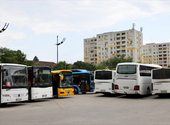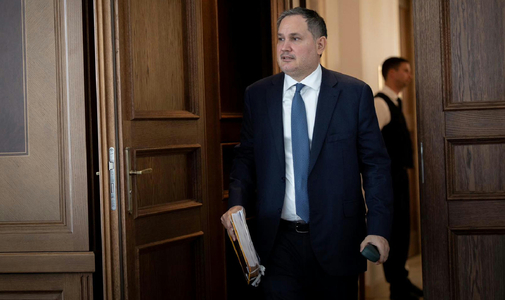Janos Kaszai, mayor of Veszto, a small town in Bekes county is used to arguing the case for branch lines. This is the third time he has raised his voice in protest against a plan to shut a 32km stretch of track linking Veszto and Korosnagyharsany. Successive studies have shown that with Romania's approaching accession to the EU, it is time not to shut down the branch line, but to extend it to Korosszeg, a small town on the other side of the border. Though Veszto and its neighbours have twice succeeded in averting the line's closure, in
1994 and 1999, the Transport Ministry has nonetheless concluded that the line has insufficient passengers to be economical. This is not the only line that has suffered this fate: it is planned that Mav, the state railway company, should suspend passenger transport on 28 lines, a total of 942km, on 12 December. This measure should save some HUF6.5bn and leave 201 communities without rail links.
The difference this time is that Veszto is not one of many to suffer this fate, but one of two experiments launched by the government two years ago. The aim is to establish the most effective way of running a railway line with the help of central government, the local authority and the state railway company. The aim was to have two areas in the country where it was possible to work out exactly how many passengers were using a line, and how much it cost to operate. The State Audit Office claims that Mav has no reliable data concerning these questions. Most recently, in 1999, an attempt to close 1000km of track came to nothing because the financial calculations were not based on an accurate assessment of demand.
The problem is that even today there are no reliable data, since the government originally gave authorities until 15 December to run the experiment. The mayor of Veszto asks: "Do we no longer even need data?" But it would seem that the only data the government needs is the knowledge that local authorities banding together can prevent line closures. The government has learned from its experiences with schools, where it was much easier to force local authorities to cooperate by cutting their budgets than by drawing up plans. The government seems to feel that by presenting local authorities with a fait accompli they can force local authorities to act.
Since January, it has been possible to create so-called "regional railway networks" in cases where local authorities are prepared to take on responsibility for sections of track that have little importance for the national network. Comings months will show whether local authorities are prepared to take on a new burden or whether locals will be forced to turn to pricier and less comfortable long-distance bus services. At the beginning of the year, Daniel Antal, president of the Hungarian Rail Authority, said it is possible to run even less-used branch lines economically, and called for local authorities to cooperate on constructing regional networks.
But the government believes that both the local councils and the rail service providers have blocked attempts at reform in recent years. The transport minister made it clear that Mav and the Volan long-distance bus company could no longer compete with each other at the expense of travellers. Janos Koka said there were cases of buses arriving five minutes late at the station to prevent travellers from transferring to a train, forcing them to complete the rest of their journey by bus.
For this reason, the ministry has asserted the right to set both Mav's and the bus companies' timetables and tariff structures. The problem is that this centralisation may well not serve community interests. EU rules forbid the centralisation of regulation, ownership and tariff regulation, yet this is precisely what has happened with Mav and Volan. But the ministry expects to save some HUF50bn a year by forcing the companies to work together.

















